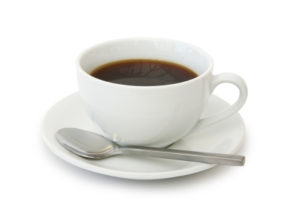 The Scandinavians really love to drink coffee, and of course researchers study the health effects of all that coffee drinking. Two recent studies both found health benefits from drinking filtered coffee (such as drip coffee), but not unfiltered coffee.
The Scandinavians really love to drink coffee, and of course researchers study the health effects of all that coffee drinking. Two recent studies both found health benefits from drinking filtered coffee (such as drip coffee), but not unfiltered coffee.
A study conducted in Norway found that over a 20 year period drinking filtered coffee daily was associated with lower death rates, when compared to those who did not drink coffee or drank unfiltered coffee. The best health effects (lowest mortality rate) were associated with drinking 1 to 4 cups per day of filtered coffee, and the unhealthiest (highest mortality rate) was drinking 9 or more cups per day of unfiltered coffee.
The researchers thought that unfiltered coffee raised the cholesterol levels, because of the lipid-raising components of coffee - the diterpenes kahweol and cafestol, which are filtered out by coffee filters. This could explain the association between unfiltered coffee and higher death rates from heart disease. Other studies have found that higher consumption of filtered coffee results in lower levels of markers of inflammation.
As was discussed in an earlier post, a recent study from Sweden found that drinking 2 to 3 cups of drip coffee (using a filter) daily lowers the risk of type 2 diabetes, while drinking boiled coffee has no health effect. The researchers put it nicely, that habitually drinking filtered coffee has a "protective role" on type 2 diabetes development.
On the other hand, other popular ways of preparing coffee don't use filters - French press, espresso, percolator, and coffee pods, and so may have similar not-so-great health effects to boiled coffee. But still unknown at this time - studies are needed.
From Science Daily: How to make the healthiest coffee
Today scientists announce the healthiest way to make a brew.
The first study to examine links between coffee brewing methods and risks of heart attacks and death has concluded that filtered brew is safest. The research is published today in the European Journal of Preventive Cardiology, a journal of the European Society of Cardiology (ESC).
"Our study provides strong and convincing evidence of a link between coffee brewing methods, heart attacks and longevity," said study author Professor Dag S. Thelle of the University of Gothenburg, Sweden. "Unfiltered coffee contains substances which increase blood cholesterol. Using a filter removes these and makes heart attacks and premature death less likely."
Coffee is one of the most popular beverages worldwide and the most frequently used stimulant. Some 30 years ago Professor Thelle discovered that drinking coffee was linked with raised total cholesterol and the "bad" LDL cholesterol -- to such an extent that it was likely to have detrimental consequences for heart health. Experiments identified the culprit substances in coffee and found that they could be removed using a filter. A cup of unfiltered coffee contains about 30 times the concentration of the lipid-raising substances compared to filtered coffee.
Between 1985 and 2003, the study enrolled a representative sample of the Norwegian population: 508,747 healthy men and women aged 20 to 79. ... Participants were followed for an average of 20 years. A total of 46,341 participants died. Of those, 12,621 deaths were due to cardiovascular disease. Of the cardiovascular deaths, 6,202 were caused by a heart attack.
Overall, coffee drinking was not a dangerous habit. In fact, drinking filtered coffee was safer than no coffee at all. Compared to no coffee, filtered brew was linked with a 15% reduced risk of death from any cause during follow up. For death from cardiovascular disease, filtered brew was associated with a 12% decreased risk of death in men and a 20% lowered risk of death in women compared to no coffee. The lowest mortality was among consumers of 1 to 4 cups of filtered coffee per day.
Filtered brew was also less risky than the unfiltered beverage for death from any cause, death due to cardiovascular disease, and deaths from heart attacks. "Our analysis shows that this was partly because of the cholesterol-increasing effect of unfiltered coffee," said Professor Thelle.
Professor Thelle noted that unfiltered coffee did not raise the risk of death compared to abstaining from coffee -- except in men aged 60 and above, where unfiltered brew was linked with elevated cardiovascular mortality.
He said: "We only had one measurement of coffee consumption, but we know that brewing habits were changing in Norway during the follow-up period. We believe that some women and younger men drinking unfiltered coffee switched to filtered, thereby reducing the strength of the association with cardiovascular mortality, whereas older men were less inclined to change their habits."
Professor Thelle emphasised that these are observational data, but that if public health authorities asked for his advice it would be: "For people who know they have high cholesterol levels and want to do something about it, stay away from unfiltered brew, including coffee made with a cafetière. For everyone else, drink your coffee with a clear conscience and go for filtered."
